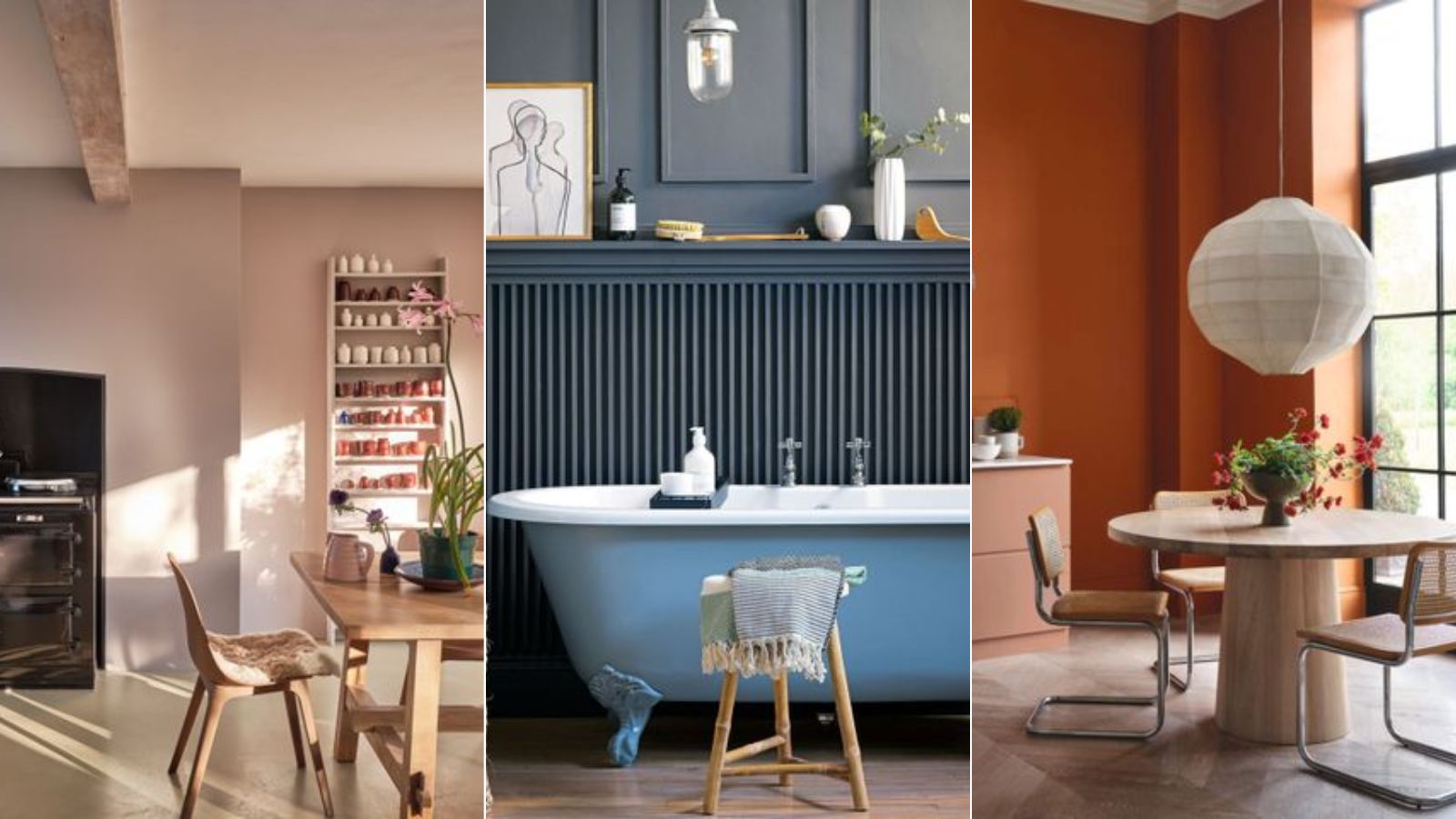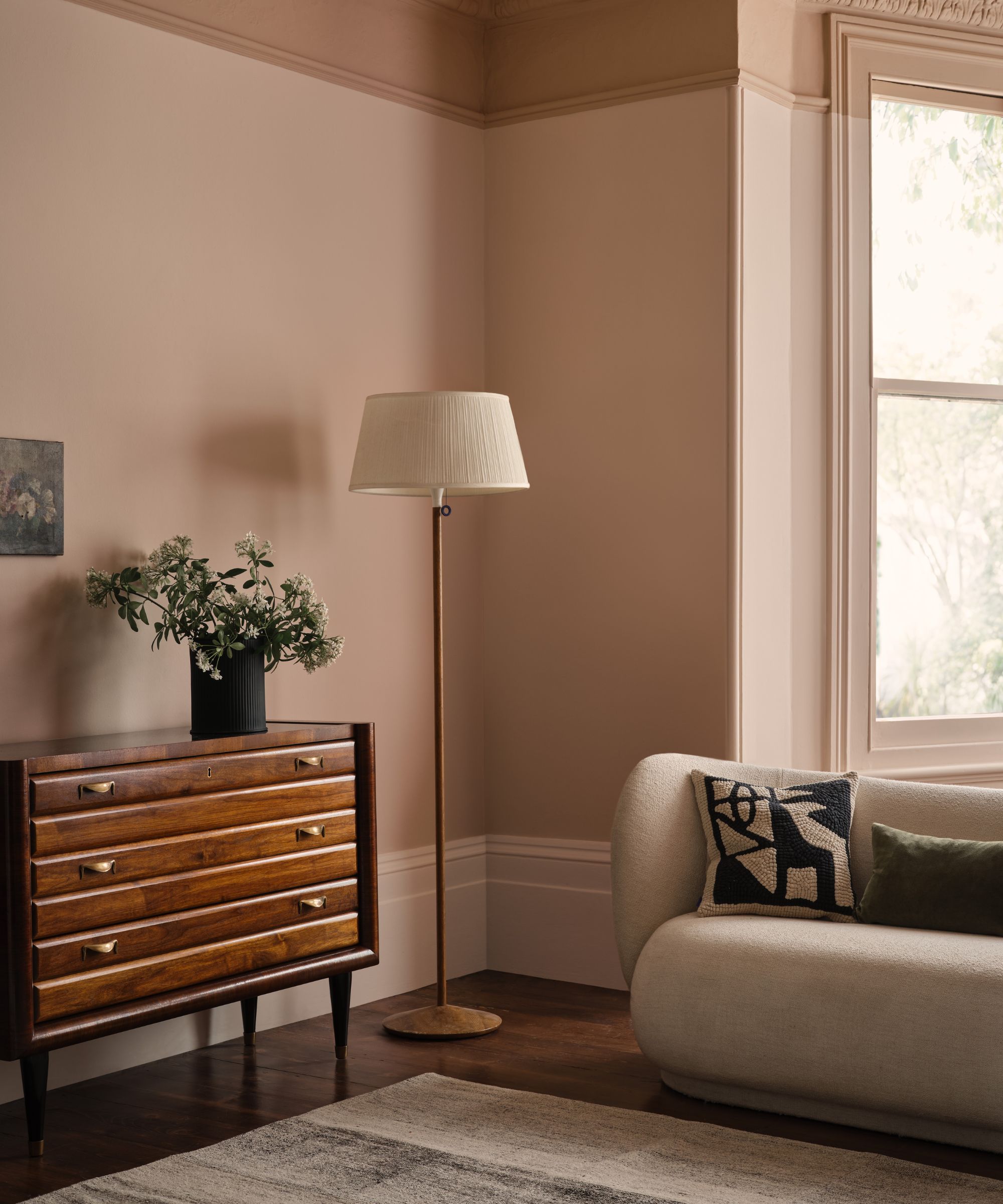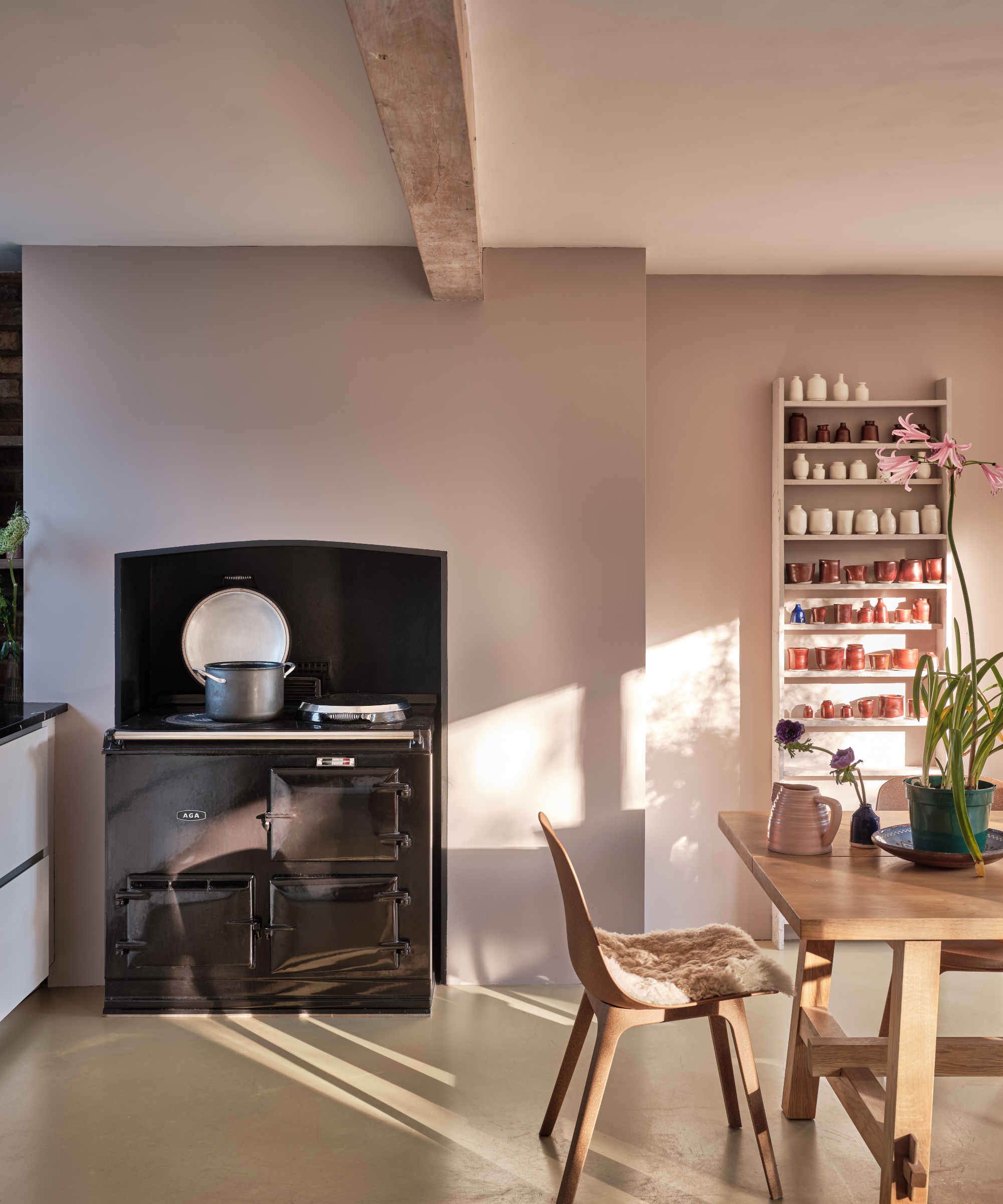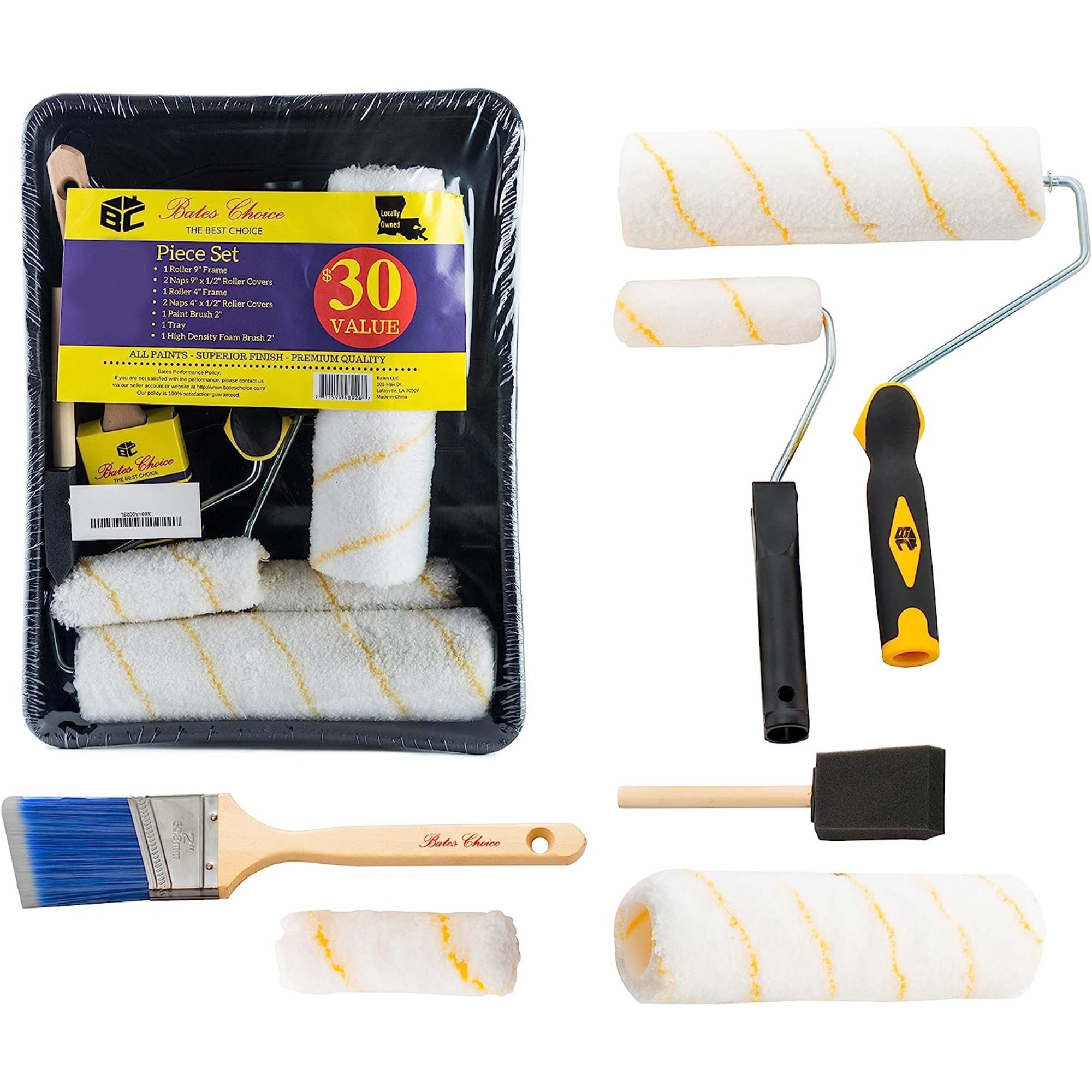How to prolong the life of your paint job, according to painters and decorators
Ensure your walls remain vibrant and fresh by noting these expert tips


Maintaining the aesthetic appeal of your walls is about more than just choosing the best paint color for your space – by knowing how to prolong the life of your paint job, you can ensure they remain looking vibrant and fresh.
The walls in your home play a significant role in its overall appearance and they are easy to take for granted. Over time, they can become stained, scuffed, or faded, so it's important to stay vigilant to the signs it's time to repaint your walls and to know how to keep them looking their best.
Our experts have explained the ways to paint your walls so that they will last.
How to prolong the life of your paint job
'Painting your interior walls is a transformative process that can breathe new life into your home. Remember, a fresh coat of paint is not just an aesthetic upgrade; it's an investment in the well-being of your home and the enjoyment of its occupants,' says Nathan Mason, owner of painting and decorating company, Attention2detail.

Promptly repair cracks, holes, or other imperfections when you notice them and touch up the paint of your walls to prevent further damage and paint discoloration.
'Properly preparing wall surfaces for painting, including cleaning, sanding and priming, is a crucial factor that will determine the longevity of a paint job, since well-prepared surfaces hold paint better and are less prone to peeling or cracking,' explains Lucy Fernando.
'The type and quality of paint you use can also have a significant impact on how long the paint will last,' continues Lucy Fernando. 'Higher-quality paints are often more durable and last longer, so it’s recommended to invest in such types to extend the time before repainting is needed.'
Design expertise in your inbox – from inspiring decorating ideas and beautiful celebrity homes to practical gardening advice and shopping round-ups.
Ivo Iv, founder and CEO of Decor Home Ideas says, 'For interior paints, I prefer matte or flat finishes on walls and semi-gloss and satin for trims. High-quality paints usually have better durability and longevity, and you can easily clean them.
'Ensure adequate ventilation during and after painting to prevent moisture buildup,' advises Nathan Mason.
You may also want to use methods to reduce the humidity in these rooms, such as using a dehumidifier to prevent this from damaging the paintwork as quickly.
Regularly clean your walls by gently wiping them with a mild detergent solution to remove dust and grime.
To clean walls before repainting, dust them with a microfiber cloth, such as these MR.SIGA microfiber cloths, from Amazon, then use a mixture of warm water and dish soap. For tougher stains using a mixture of water and white vinegar can help remove dust, dirt, and stains, thus delaying the need for repainting.
Test an inconspicuous area on your wall before cleaning to prevent damage.
Other factors to bear in mind
'By understanding the factors that influence painting frequency and recognizing the signs that your walls need a refresh, you can ensure that your living spaces remain vibrant, inviting, and a reflection of your personal style,' says paint professional Nathan Mason.
Walls and paint type

The different types of wall materials will influence how often they need to be repainted.
'Smooth walls may not need to be repainted as often compared to textured surfaces such as stucco or brick. With smooth walls, you can usually get away with a fresh coat of paint every 3-4 years. But for textured surfaces, I recommend repainting every 2-3 years,' advises Nicole Saunders, interior design specialist, and the founder of The Design Build Vault.
The reason for this is different materials will react differently to various factors. Porous surfaces can absorb dirt and stains more easily than smooth walls.
Additionally, the quality of the paint and type of paint can impact how frequently you may need to repaint walls. Investing in high-quality paint formulations can significantly extend the lifespan of the paint job, reducing the need for frequent repainting and the risk of your wall paint bubbling.
'Higher-quality paints with better durability and stain resistance will last longer and tend to resist fading, staining, and wear better than lower-quality alternatives,' explains Alex Motronchik, founder of Best Exteriors.
'Generally, latex paints last 5-7 years, while oil-based paints can endure for 7-10 years,' says Richard Fuessel, owner of Your Local Painters.
Matte paint finishes might also need more frequent repainting due to being less washable than satin or semi-gloss finishes.
Additionally, if your walls are painted with dark or bold colors they may require more regular touch-ups or repaints compared to lighter colors, since they tend to show wear and fading more prominently.

Richard Fuessel is a licensed contractor and the owner of Your Local Painters, delivering meticulous, transformative, and professional painting services.
The elements

'Walls exposed to direct sunlight may fade faster and need more frequent repainting,' advises Alex Motronchik. 'By repainting every 3-5 years, you can keep your walls looking fresh and vibrant.
'Additionally, humidity levels can impact how regularly you should paint your walls. High humidity can cause paint to peel or blister, requiring earlier repainting.
'Bathrooms and kitchens are moisture-prone areas and may require repainting every 3-4 years.'
Additionally, if walls are exposed to frequent temperature fluctuations or there is inadequate ventilation in a room leading to moisture buildup, this can undermine the paint's adhesion, causing cracks and peeling to occur sooner, requiring more frequent repainting.
Whether it's a high or low-traffic space

The function of a room and its traffic flow can significantly impact how often it should be repainted. 'High-traffic areas, such as hallways, entryways, and living rooms, tend to get more scuffs, stains, and fading over time. For these areas, it's usually best to repaint every 2-3 years to maintain a fresh and clean look,' recommends Richard Fuessel.
Rooms such as kitchens and bathrooms, will require repainting frequently due to high traffic and the potential for humidity and moisture-related damage, such as peeling or discoloration. In general, you should repaint these spaces every 3-4 years to address high humidity, exposure to cooking fumes, moisture, and general wear.
Living rooms and dining rooms which see high to moderate traffic can on average be painted every 5-7 years, adjusting for the presence of children or pets and room usage.
'Bedrooms and other low traffic spaces won’t require repainting as often as other more frequently used rooms,' says painting expert and house improvement coordinator at Fantastic Services, Lucy Fernando. 'Generally, a good repainting timeframe for them is every 5 to 7 years, but if you notice any stains or damage, it's recommended to address them sooner. In fact, unless there’s a change of decor, you can go as long as 10 years before repainting your bedroom walls.
'On the other hand, children’s bedrooms will probably need repainting every 2 to 3 years because they grow faster and their tastes change with that. Besides that, they usually tend to leave more scuffs, marks, and other types of damage on the walls.'
For a more tailored approach, consulting with a painting professional can provide insights specific to your home's needs and conditions.
FAQs
What impacts how often to paint baseboards and trim?
'The weather and climate of your area can affect the interior paint on baseboards and trim,' explains Shlomo Cherniak, owner of Cherniak Handyman Services. 'In areas with hot weather and exposure to salt in the air, it is advisable to repaint baseboards and trim to maintain their luster.'
'Consulting with a professional about the impact of weather and climate in your area is a good idea.'
How often should you paint your ceiling?
'Ceiling paint tends to last longer than wall paint, so it is recommended to repaint ceilings every other time you paint your walls,' advises Shlomo Cherniak. 'A professionally done ceiling paint job can last up to 10 years.'
How do I know when to repaint my walls?
Assess the overall condition of your walls, looking for signs of wear and tear, such as peeling paint, stains, or scuffs. If these are present, it's time for a fresh coat of paint.
'Aside from the passage of time, there are telltale signs that indicate your walls are ready for a makeover,' says Nathan Mason, owner of Your Local Painters.
'Faded or discolored paint: Paint naturally fades over time, making walls appear dull and lifeless.
'Scuffs, marks, and stains: These blemishes detract from the overall appearance of your walls.
'Bubbling or peeling paint: This indicates moisture issues that require immediate attention.
'Chalky or powdery finish: This suggests that the paint is nearing its end and needs to be replaced.'
Check walls for water stains and scuffs, and while you don't want to make more work for yourself, avoid waiting until they are in desperate need. As a fresh lick of paint is one of the most inexpensive and powerful ways to revamp our spaces, boosting our mood and making things feel updated and on-trend.

Lola Houlton is a news writer for Homes & Gardens. She has been writing content for Future PLC for the past six years, in particular Homes & Gardens, Real Homes and GardeningEtc. She writes on a broad range of subjects, including practical household advice, recipe articles, and product reviews, working closely with experts in their fields to cover everything from heating to home organization through to house plants. Lola is a graduate, who completed her degree in Psychology at the University of Sussex. She has also spent some time working at the BBC.


